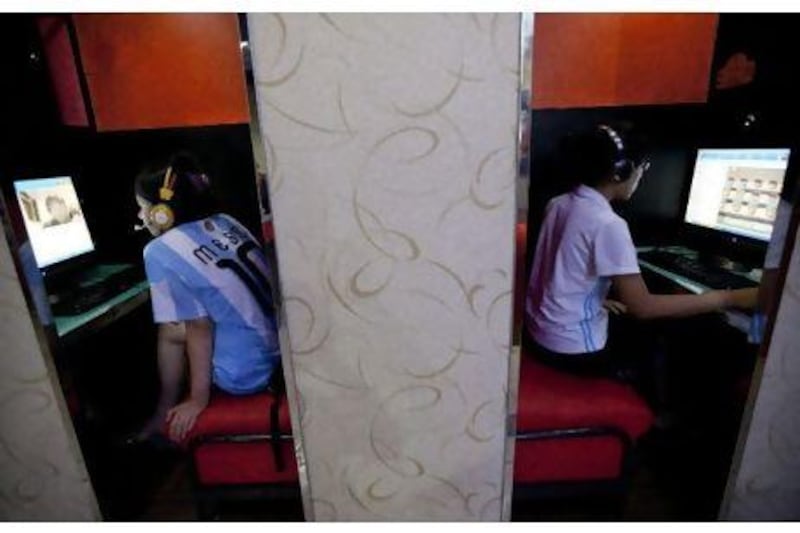BEIJING //Chinese authorities have further tightened internet use by compelling cafes, hotels and bookshops to install software that will allow security officials to monitor who is using wireless internet services and what websites they are logging on to.
State media have reported that venues including bars and restaurants will have to pay for the software themselves, potentially leading some to stop offering wireless services.
The software is designed to pass users' details to local public security bureau, the offices that run the police and other security services.
China already has stringent internet restrictions that include bans on accessing certain websites and the blocking of searches on sensitive subjects such as the 1989 Tiananmen Square crackdown.
Earlier this year, as dissent spread across the Middle East, searches related to many of the countries where uprisings were taking place were also suppressed, amid concern that copycat protests could develop in China.
Some cafes have said they will have to stop offering wireless internet services because of the high cost of buying the software, estimated at 20,000 yuan (Dh11,401).
Ning Liu, a Beijing-based internet analyst, said the equipment was "not affordable" for many venues.
"It will impact the wireless market, because some hotels and bars will not continue to provide Wi-Fi and wireless services to their customers," he said.
"The government is a little nervous of wireless access because it's very hard for them to control the content and information on the internet. That's the basic reason."
State newspapers have reported that the regulations, already introduced in the capital and in other major cities including Shanghai, will be applied nationwide.
Officials have justified the new rules by saying they are needed to combat criminal activity such as goods trafficking, blackmail and the spread of computer viruses. Cafes that do not install the new software risk fines of 15,000 yuan.
Currently, many coffee shops and airports offer internet access, although in some cases these require users to type in their mobile telephone number, which is registered under their name, before they can begin web surfing.
China has other initiatives designed to allow the monitoring of its internet users, who number about 450 million, twice as many as in the second-placed country, the United States. Plans to require internet cafes to register users' names with police date back to 1999 while, three years ago, new regulations meant internet cafe visitors in Beijing had to register by having their photographs taken.
Some restrictions were said to have been brought in to prevent minors from using internet cafes. Internet addiction has become a major concern in China, to the extent that parents have sent their children to boot camps designed to help youngsters rid themselves of the compulsion to surf the net.
The internet is tightly controlled partly because of concerns it could act as a focus for dissent. Foreign social networking sites such as Facebook, which are said to have played a part in organised dissent in some Arab countries, are banned in China.
Many internet users are however able to get around the restrictions imposed by the authorities by installing special software.






